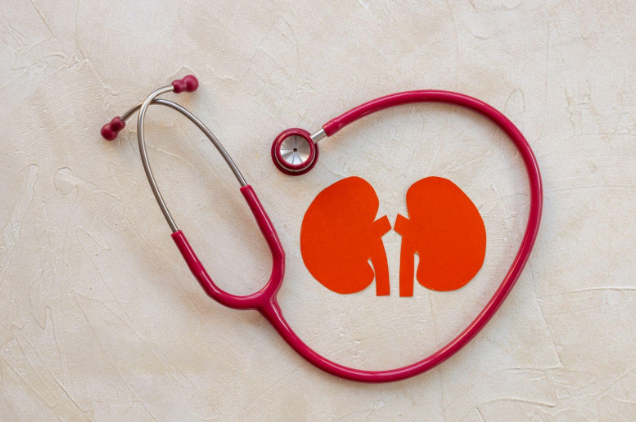Exploring the Link between Immune Dysfunction and Renal Disease

Immune dysfunction and renal disease are deeply interconnected health concerns that can significantly impact an individual's well-being. The immune system, which defends the body against infections and illnesses, can sometimes malfunction, leading to various complications, including renal disease. Renal disease, in turn, can exacerbate immune system problems, creating a complex and challenging cycle.
Let’s explore the relationship between immune dysfunction and renal disease, the potential causes, and the implications for patient health.
The Role of the Immune System
The immune system is a complex network of cells, tissues, and organs that work together to protect the body from harmful invaders such as bacteria, viruses, and toxins. It consists of two main components: the innate immune system, which provides a general defense against pathogens, and the adaptive immune system, which targets specific threats. A well-functioning immune system maintains overall health, as it helps the body fight off infections and recover from injuries.
However, when the immune system is compromised or functions improperly, it can lead to immune dysfunction. This condition can manifest in various ways, including an increased susceptibility to infections, autoimmune disorders, and chronic inflammation. Immune dysfunction can have far-reaching effects on the body, including the kidneys, which play an integral role in filtering waste products and excess fluids from the blood.
How Renal Disease Develops
Renal disease, also known as kidney disease, occurs when the kidneys are damaged and can no longer perform their important functions. There are several types of renal disease, including chronic kidney disease (CKD), acute kidney injury (AKI), and end-stage renal disease (ESRD). The development of renal disease can result from various factors, including diabetes, high blood pressure, infections, and genetic conditions.
One of the major roles of the kidneys is to filter and remove waste products from the blood. When the kidneys are damaged, these waste products can build up in the body, leading to a range of health problems. Renal disease can also cause an imbalance of electrolytes and fluids in the body, leading to complications such as high blood pressure, anemia, and weakened bones.
The Connection between Immune Dysfunction and Renal Disease
The relationship between immune dysfunction and renal disease is complex and bidirectional. On one hand, immune dysfunction can contribute to the development and progression of renal disease. For example, autoimmune disorders such as lupus nephritis occur when the immune system mistakenly attacks the kidneys, leading to inflammation and damage. Chronic inflammation, a common feature of immune dysfunction, can also harm the kidneys over time, increasing the risk of chronic kidney disease.
On the other hand, renal disease can exacerbate immune dysfunction. The kidneys are integral in regulating the body's immune response, and when they are impaired, the immune system may become less effective at fighting infections. Patients with renal disease are at a higher risk of infections due to a weakened immune system. Also, the accumulation of waste products in the blood can further compromise immune function, creating a vicious cycle of declining health.
Potential Causes of Immune Dysfunction in Renal Disease
Several factors contribute to immune dysfunction in patients with renal disease. One of the primary causes is the buildup of uremic toxins—waste products that are typically filtered out by healthy kidneys. These toxins can suppress immune function and increase the risk of infections. Anemia, a common complication of renal disease, can also weaken the immune system by reducing the oxygen supply to vital organs and tissues.
Moreover,
dialysis, a common treatment for advanced renal disease, can contribute to immune dysfunction. Although dialysis is necessary for removing waste products from the blood, it can also lead to inflammation and immune system suppression. Patients undergoing dialysis are more susceptible to infections, and the treatment itself can cause complications such as catheter-related infections and bloodstream infections.
Managing Immune Dysfunction and Renal Disease
Managing immune dysfunction in patients with renal disease requires a comprehensive approach that addresses both the underlying kidney condition and the immune system's health. Treatment strategies may include medications to control blood pressure, blood sugar levels, and inflammation, as well as lifestyle changes such as a balanced diet, regular exercise, and avoiding smoking.
Immunosuppressive therapy may be necessary for patients with autoimmune-related renal disease. These medications help reduce the immune system's activity, preventing further damage to the kidneys. However, immunosuppressive drugs can also increase the risk of infections, so careful monitoring and preventive measures are important.
For patients with advanced renal disease, dialysis or
kidney transplantation may be required. While these treatments can help manage the disease and prolong life, they also come with challenges, particularly concerning immune system function. Patients receiving a kidney transplant must take immunosuppressive drugs to prevent rejection, which can further weaken the immune system. Preventing infections and maintaining overall health becomes a critical concern for these patients.
The Importance of Early Detection and Prevention
Early detection and prevention can help in managing immune dysfunction and renal disease. Regular health check-ups, blood tests, and urine tests can identify early signs of kidney dysfunction and immune system issues. For individuals with risk factors such as diabetes, high blood pressure, or a family history of kidney disease, regular monitoring can prevent the onset of renal disease.
Preventive measures, including maintaining a healthy lifestyle, controlling blood sugar and blood pressure, and staying hydrated, can reduce the risk of kidney disease and support a healthy immune system. For patients with existing renal disease, closely managing the condition and adhering to treatment plans can help mitigate the impact on the immune system and overall health.
At
Metropolitan Kidney Centers, we specialize in providing comprehensive care for individuals with kidney disease, focusing on both early detection and advanced treatment options. Our dedicated team of experts is committed to supporting your journey to better health with personalized care plans that address your unique needs.
Schedule a consultation with us today to take the first step towards managing your kidney health.















